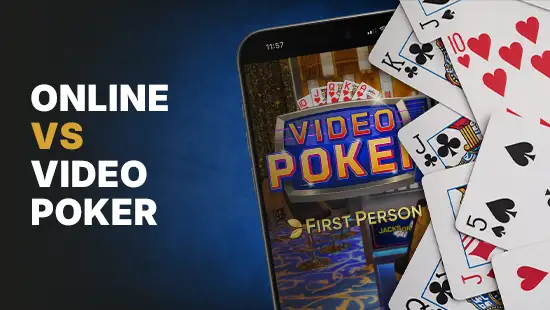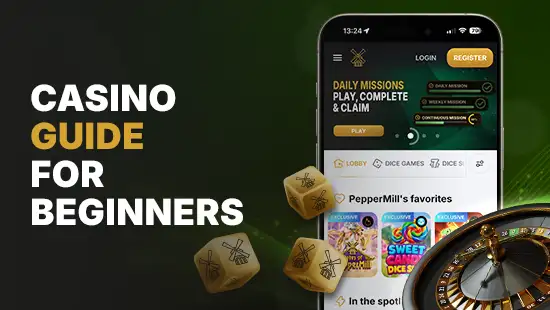

October 22, 2024, 10:00
The evolution of roulette: from a French parlor game to an online classic
Roulette! Who doesn't recognize that iconic spinning wheel and the little ball bouncing around? Forget fancy suits and tuxedos, you can even play it in your PJs these days. But how did this game go from posh parties in France to your computer screen? We explore the history of roulette and its evolution into online casinos.

The birth of roulette: more luck than wisdom
Although roulette as we know it was developed in France, there were older civilizations that played similar games in which fate played a major role. For example, the ancient Romans played with spinning wagons and shields, and in China a wheel was used for various games of chance. In this sense, the concepts of chance and fate, which are central themes in roulette, have always been present in human history.
These early forms of gambling didn't have a structured betting or payout system like today. It took until the 17th century for roulette to take its current shape.
French mathematician and inventor Blaise Pascal tried to build a machine that would run forever, a kind of perpetual engine. He did not succeed, but what he did accidentally invent was the first idea for the modern roulette game.
Rich folks in Paris loved playing with Pascal's invention, but the original wheel had no zeroes, which meant players had a pretty good shot at winning. Casino owners weren't too thrilled about that, so in the mid-1800s, two brothers named Blanc came up with a sneaky trick: they added a green zero spot. This gave the house a bit of an edge, and voila! The single-zero wheel, or European roulette, was born.
Two continents, two wheels
While roulette became wildly popular in Europe, it also crossed the Atlantic to the United States. But they weren't satisfied with just one green space. They wanted more of a house advantage, so they slapped on another zero – the double zero. A new variant comes into play, known as American roulette, with an extra green box: the double zero.
The American version has 38 slots instead of 37. This may seem like a small difference, but it makes quite a difference in the player's odds. Whereas in European roulette you have a house edge of 2.7%, that rises to 5.26% in American roulette. Still, the American variant remained a great success, especially in Las Vegas.

From casinos to the Internet: a digital revolution
The 1990s saw a revolutionary transformation in the casino industry with the advent of the Internet. Casinos moved from luxurious buildings to digital space. And roulette, of course, went along with it.
The first online roulette games were simple: a wheel on your screen, a few buttons to bet, and that was it. But it had everything players needed. They no longer had to get in their car to go to a casino or gaming hall; they could gamble from the comfort of their couch. And that caught on. Together with the option to play for free in demo, made online roulette enormously popular.

Live roulette: the best of both worlds
Those early versions were fun, but they lacked something: the atmosphere! You couldn't hear the ball rolling, feel the excitement in the room, or chat with the dealer. Enter live dealer roulette!
With live roulette, you could play from home, but watch a real dealer spin the wheel in a real casino (streamed live, of course) and place your bets in real time. It brought the thrill of a real casino right into your living room. No wonder it became a massive hit!
New variants: more than just a spinning wheel
Roulette has remained surprisingly consistent in its basic rules over the centuries, but that does not mean there is no variation. Especially in online casinos, countless new game variations have been developed to keep surprising players.
Consider, for example, XXXtreme Lightning Roulette (left), where random numbers can receive multipliers for huge payouts. Or Speed Roulette (right), where everything goes just a little faster for players who don't like to wait. Innovations like these ensure that roulette remains exciting in modern times and continues to attract new players.

And then there's the future. Virtual reality (VR) is set to revolutionize the casino experience. With VR glasses, players can walk around a virtual casino and play at a roulette table as if they were in Las Vegas.
The enduring appeal of roulette
What is it that still makes roulette so popular after all these years? Perhaps it is the simplicity of the game: anyone can join in. You don't have to know complicated strategies, or count cards. You simply pick a number, a color, or a range of numbers and then the wheel spins. The thrill of the spin, the moment when the ball falls - that always remains an adrenaline rush.
But the social side also plays a role. Whether you play in a real casino or online with a live dealer, roulette has a charm that brings players together.
Roulette is obviously not just another game! The game is a classic that reinvents itself over and over again. And with all the technological innovations still ahead, roulette will be around for a long time to come.


